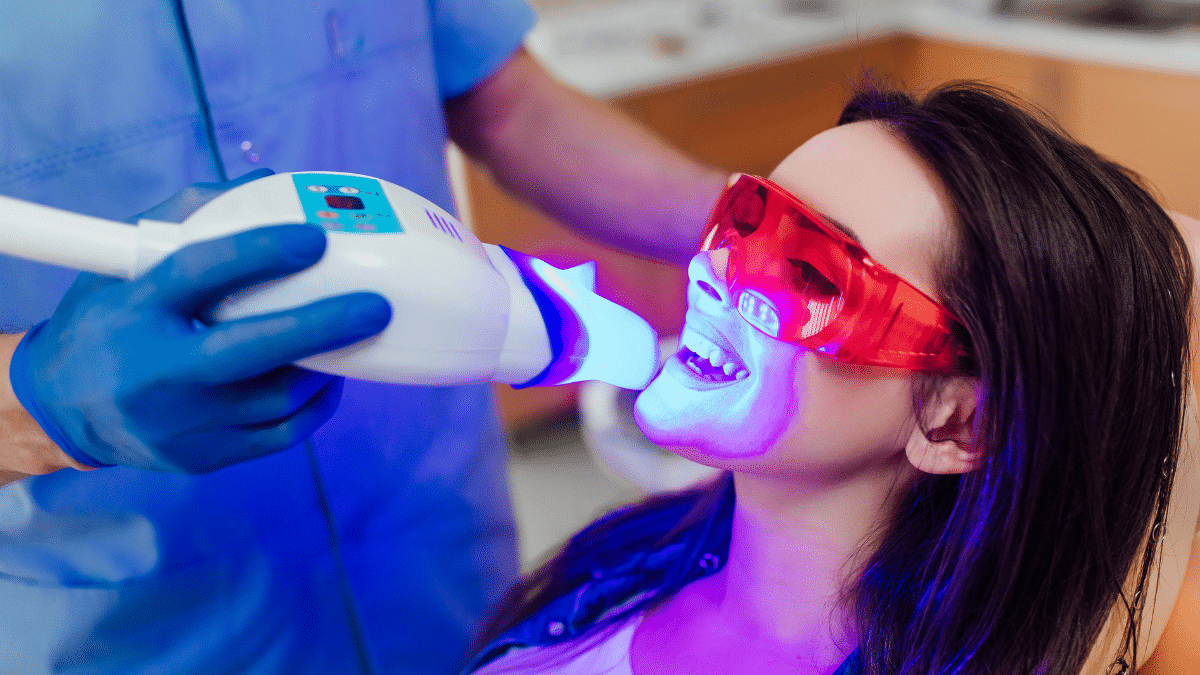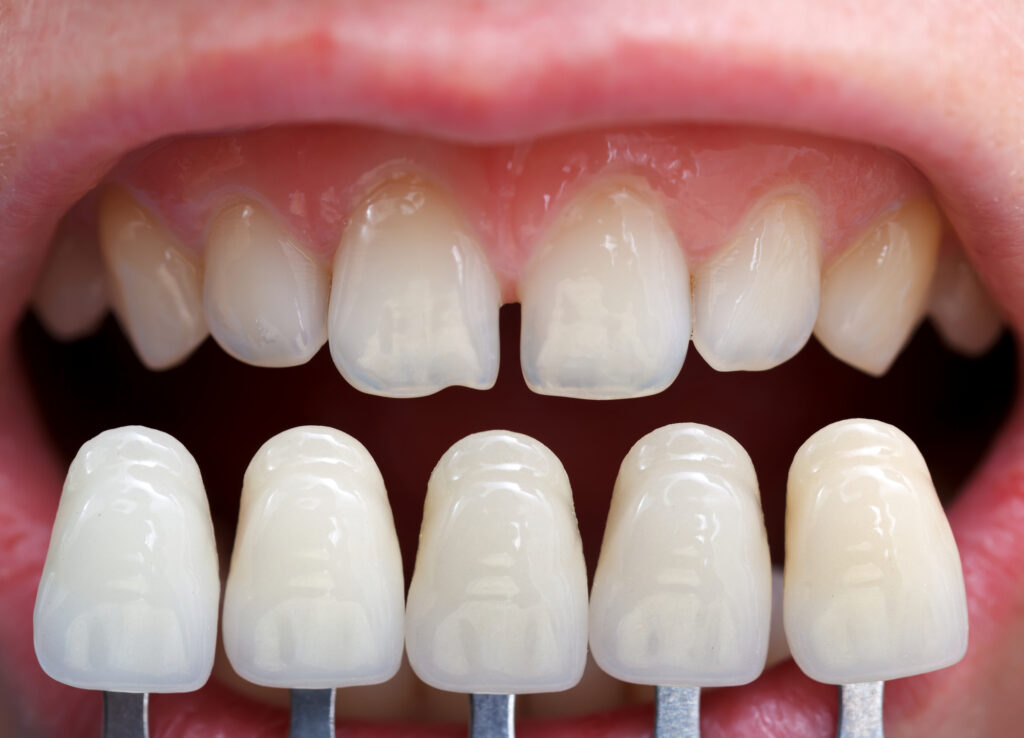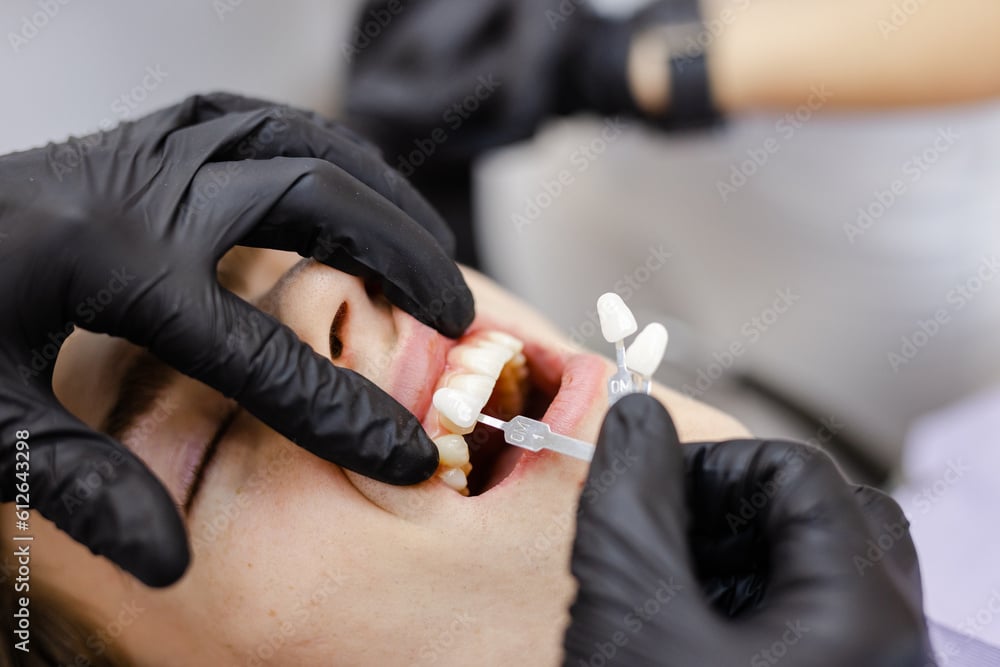If you’re considering a trip to Bali, teeth whitening might be on your list of things to do. After all, who doesn’t want a brighter smile for those vacation photos? But is it really safe? I’ve done the research and I’m here to give you an unbiased look at this popular tourist service.
First off, let’s talk about the process itself. Teeth whitening in Bali typically involves bleaching agents like hydrogen peroxide or carbamide peroxide. These substances are applied directly onto your teeth and left there for a certain amount of time. Now if you’re thinking that sounds pretty similar to what happens back home – well, you’d be right!
However, safety standards can vary from one country to another – even from one clinic within the same country! So while getting your teeth whitened in Bali may not inherently be unsafe, it’s crucial that you choose a reputable clinic with highly trained staff and good hygiene practices.
There have been some horror stories shared by travelers who ended up with gum burns or overly sensitive teeth after their procedure because they went with cheaper options or didn’t properly research beforehand. So take my advice: don’t skimp when it comes down to your health!
Understanding Teeth Whitening
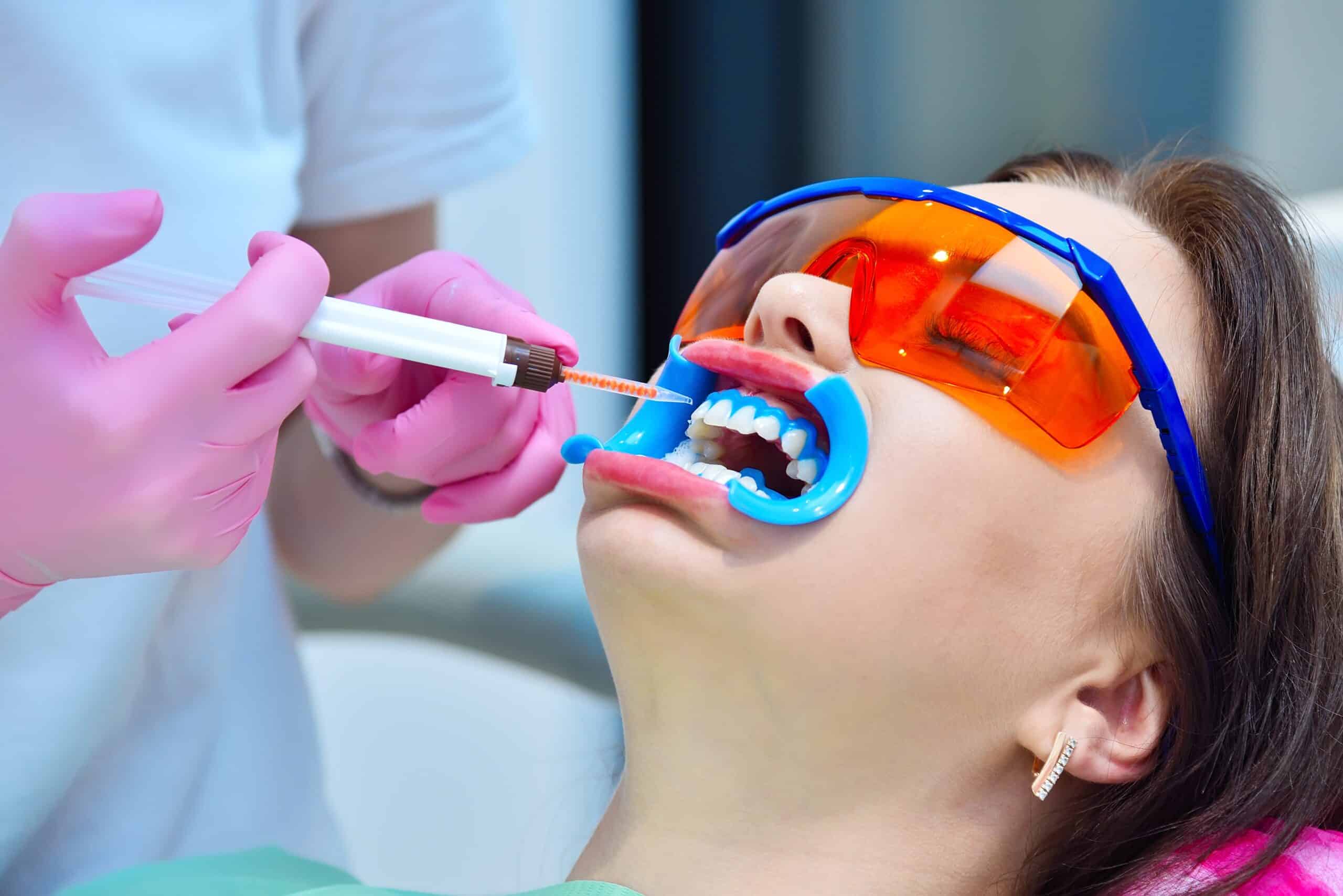
Let’s dive right into the heart of the matter – teeth whitening. It’s a popular dental procedure that can significantly brighten your smile by removing stains and discoloration. Dentists across the globe are seeing an increase in patients opting for this cosmetic treatment, making it one of the most sought-after procedures in dental aesthetics.
Teeth whitening is not a one-time process. It’ll need to be repeated from time to time if you want to maintain that brighter color. The frequency largely depends on your lifestyle choices such as consumption of staining substances like coffee, tea or tobacco.
So how does teeth whitening work? Well, it’s all about chemistry! The active ingredient in most teeth whiteners is a type of peroxide (either hydrogen peroxide or carbamide peroxide). This chemical breaks down into tiny molecules that can get into those nooks and crannies where toothbrushes can’t reach, breaking up stains and lightening overall tooth color.
There are several methods available for teeth whitening:
- In-office bleaching: This procedure takes place under carefully monitored conditions allowing for safe use of high-concentration bleaching gels.
- At-home bleaching: Products include custom-made trays with bleach solution fitting over your teeth.
- Over-the-counter products: These may include paint-on products, strips and even toothpaste specially formulated for tooth-whitening.
Each method has its own benefits which should be discussed with your dentist before proceeding with any form of treatment. Remember though – safety first! Teeth-whitener doesn’t replace daily brushing; good oral hygiene remains critical regardless!
The effectiveness varies from person to person depending on factors like age, type of stain (intrinsic vs extrinsic), concentration & strength of bleach used among others but generally speaking, many people see noticeable improvement after just one session while some require multiple sessions spread out over weeks or months.
Is Teeth Whitening in Bali Safe?
Now let’s get into the meat of the matter – is teeth whitening in Bali safe? I’ll start off by saying that it really depends on where you go and who you entrust with your precious pearly whites.
In terms of professional dental clinics, many are up to international standards. These places often employ dentists who’ve been trained overseas and use top-of-the-line equipment. They’re also likely to follow strict hygiene practices, similar to what you’d find back home. But here’s a word of caution: not every clinic falls into this category.
Unfortunately, there are also less reputable operations out there offering teeth whitening services at significantly lower prices than their professional counterparts. While these bargain deals might be tempting for some travelers on a budget, they come with considerable risks including:
- Improper or unhygienic procedures
- Use of low-quality or even dangerous bleaching agents
- Lack of adequate aftercare instructions
It’s crucial to do your research before deciding on any health-related procedure abroad – especially something as delicate as teeth whitening.
Let me share an interesting statistic – according to the Australian Dental Association (ADA), about 1000 Australians travel overseas for dental treatments each year; out of them around 30% experience complications afterwards! It just goes to show that cheaper doesn’t always mean better when it comes down your health.
So while getting your teeth professionally whitened in Bali can be safe if done correctly and responsibly – don’t throw caution overboard solely based on price tags! It’s wise always prioritize safety above all else when considering any kind cosmetic procedure like this one.
The Risks of Overseas Dental Procedures
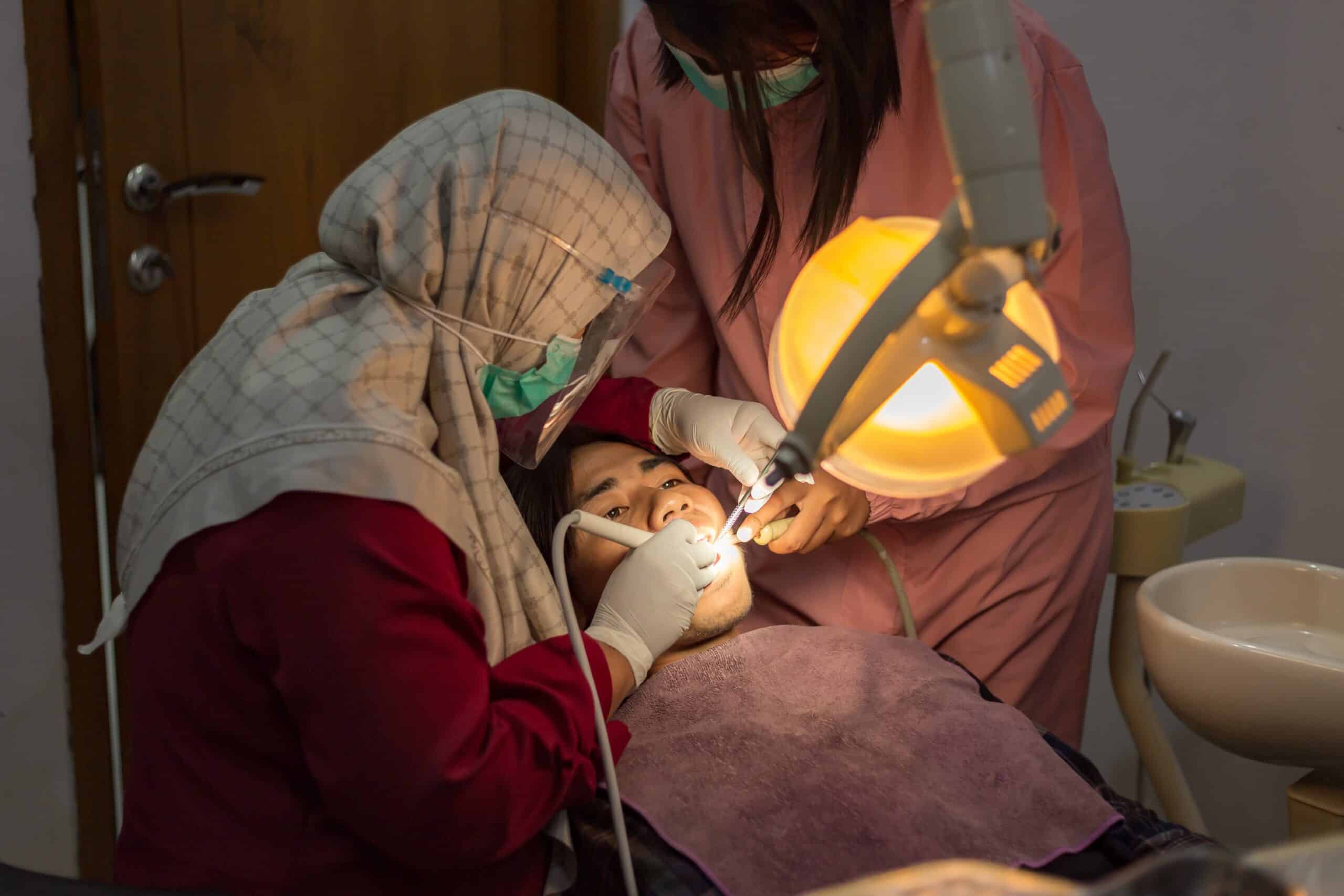
Venturing overseas for dental procedures, like teeth whitening in Bali, can seem like a tempting option. It’s often cheaper and tied to an exotic vacation – what could go wrong? However, it’s important to be aware that such decisions come with inherent risks.
The first major risk involves the standards of practice and regulation. In the US, dentists are held to strict standards set by professional bodies such as the American Dental Association (ADA). These institutions ensure safe practices through rigorous training and ongoing checks. But when you step outside these regulated environments, there’s no guarantee that these same safeguards exist. For instance:
- Lack of proper sterilization: This might expose patients to serious infections.
- Use of outdated or unapproved equipment: This could lead to ineffective treatment or even damage your teeth.
Another significant risk is related directly to aftercare – something often overlooked when considering overseas treatments. Post-procedure care is critical for any dental treatment; it ensures recovery without complications while also addressing any issues promptly should they arise.
Let me put this into perspective with a hypothetical scenario – imagine getting your teeth whitened in Bali but then experiencing severe sensitivity afterwards back home in New York City! Who would you turn up for immediate help? Your local dentist who was not part of the initial procedure might struggle diagnosing or treating potential issues due their unfamiliarity with methods used abroad.
Lastly but importantly is communication barrier which can potentially hamper understanding between patient and practitioner leading towards misdiagnosis or mistreatment – both detrimental scenarios!
So while jetting off somewhere tropical like Bali may make a tantalizing proposition coupled with affordable dental treatments; always bear in mind potential risks involved before making final decision.
Bali’s Reputation for Dental Tourism
Let me tell you, Bali isn’t just renowned for its stunning landscapes and vibrant culture. It’s also fast becoming a hotspot for dental tourism. Year after year, people from all corners of the globe flock to this Indonesian paradise not only to soak up the sun but also to take advantage of high-quality, affordable dental services.
What sets Bali apart in the realm of dental tourism? Well, it’s primarily due to its exceptionally skilled dentists who often train overseas and bring back advanced techniques and knowledge. This ensures that you’re getting top-notch treatment comparable with what you’d receive in western countries like Australia or America.
Here are some quick facts:
- The cost savings are significant: Often times one can save up to 70% on treatments compared to prices in their home country.
- English is widely spoken: Communication barriers are almost non-existent as most Balinese dentists speak fluent English.
- Sterilization procedures meet international standards: Clinics follow stringent sterilization protocols which align with those practiced globally.
Now, let’s talk about teeth whitening services specifically. They’ve become increasingly popular among tourists because they’re much cheaper than back home while maintaining quality service standards. Furthermore, many clinics use modern technologies such as laser teeth whitening that provide immediate results – perfect if you’re on a tight vacation schedule!
However before jumping on board this trend remember it’s crucially important that we research thoroughly before choosing any clinic abroad – even those in beautiful Bali! Look out for customer reviews online or ask your hotel staff; local insight can be invaluable when making health-related decisions abroad.
So yes folks – whether it’s a simple check-up or something more extensive like teeth whitening – Bali might just have what your dentist ordered!
Regulations and Standards in Bali’s Dentistry Field

Let’s take a moment to delve into the world of dental care standards in Bali. It’s important to remember that just like anywhere else, dentistry here is governed by a set of regulations. The Indonesian Dental Council (IDC) plays a pivotal role in setting these rules and guidelines, ensuring patient safety across the board.
The IDC requires all practicing dentists to hold valid licenses from recognized institutions. That means if you’re considering teeth whitening treatment in Bali, it’ll be performed by professionals with proper education and credentials under their belt.
Quality control doesn’t stop there though! Clinics must also adhere to strict sanitation protocols dictated by Indonesia’s Ministry of Health. This includes sterilizing equipment after each use, maintaining clean premises and using high-grade materials for treatments.
I’d be remiss not to mention how technology fits into this picture too! Many clinics are fitted out with cutting-edge dental equipment making your visit as comfortable as possible while delivering top-notch results.
Yet even despite these robust regulations, I encourage you always do your homework before choosing any medical provider abroad – including those offering teeth whitening services. Research reviews online or ask for recommendations from people who’ve had similar treatments done before!
Here are some key points:
- All practicing dentists need valid licenses
- Clinics follow stringent sanitation protocols
- Most places use modern technology
By understanding the landscape of dental regulation in Bali, we can make informed decisions about our healthcare choices while enjoying everything this beautiful island has to offer.
Patient Experiences: Teeth Whitening in Bali
Let’s dive into the real-life stories of people who’ve had their teeth whitened in Bali. I’ve heard a wide range of experiences, some fantastic and others that serve as cautionary tales.
Many patients rave about the exceptional service they received. They’re quick to point out how professional and caring the dental staff were during their procedure. The cleanliness and modernity of many clinics come up frequently in positive reviews too. Some highlights include:
- Affordable pricing compared to Western countries
- High-quality results
- Little to no sensitivity post-procedure
However, it hasn’t been all sunshine for every patient who decided on teeth whitening treatment while vacationing or living in Bali. A handful have reported issues like heightened tooth sensitivity or uneven whitening results.
Here are some common concerns from less-than-satisfied patients:
- Communication barriers with non-English speaking staff
- Inconsistent application leading to patchy results
- Severe tooth sensitivity following treatment
I should mention that these negative experiences seem relatively rare when you consider the number of people getting this cosmetic dentistry procedure done there each year. It’s also crucial to remember everyone has different oral health conditions and personal comfort levels when undergoing such treatments.
One factor contributing significantly towards both positive and negative outcomes is where you choose to get your teeth whitened in Bali – not all clinics are created equal! While many offer top-notch services at great prices, there may be others cutting corners on quality or safety standards – so do your homework before making a choice!
In essence, my investigation reveals a mixed bag when it comes down to patient experiences with teeth whitening procedures performed within beautiful Bali.
Alternatives to Getting Your Teeth Whitened Abroad
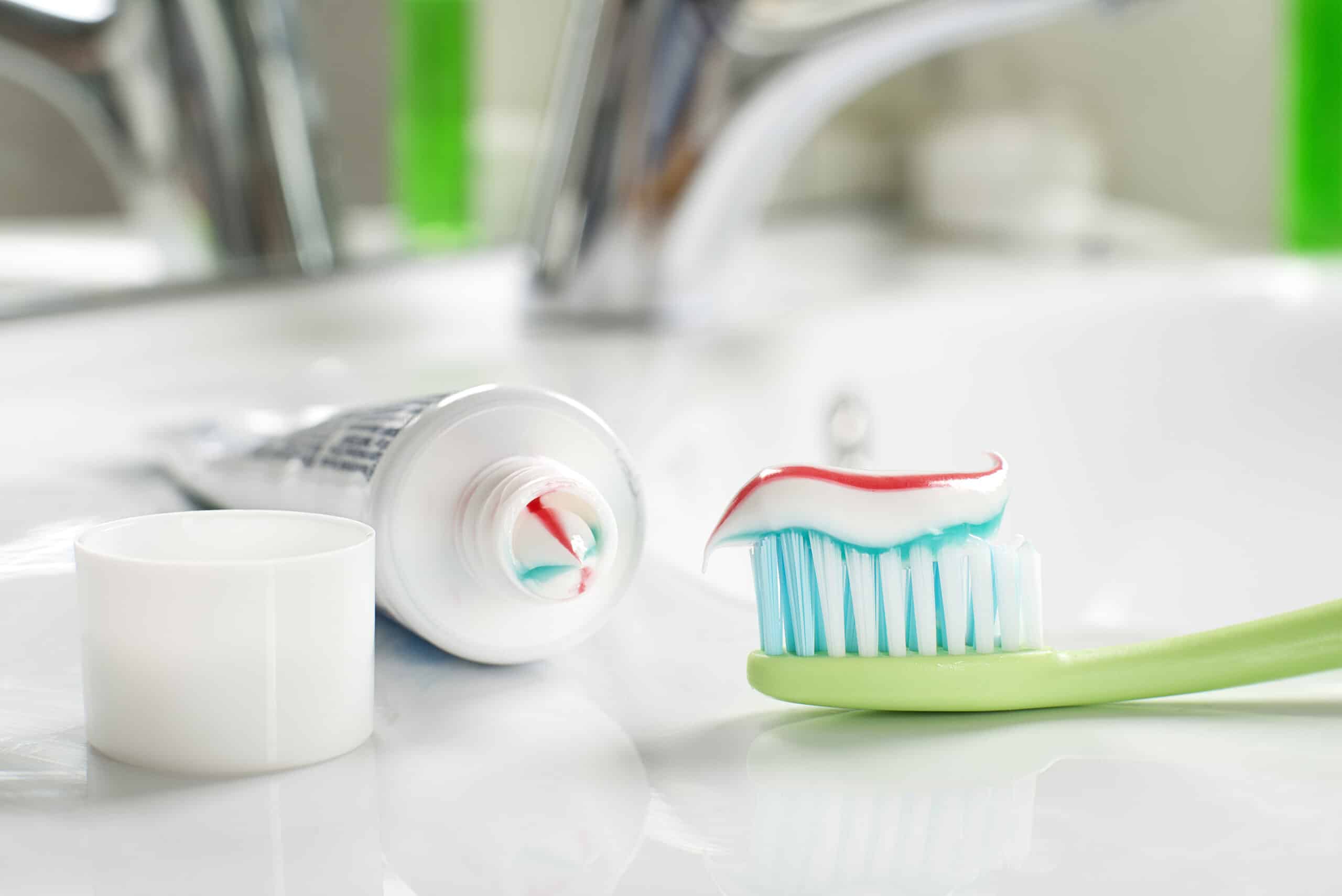
While getting your teeth whitened in Bali might seem like an enticing option, it’s not the only route you can take. There are several alternatives that can be safer and just as effective.
One of the most popular options is to have your teeth whitened professionally at a dental clinic in your home country. This method has been tried and tested for safety and effectiveness. Dental professionals use high-quality products under controlled conditions, minimizing any potential risks associated with teeth whitening procedures.
If you’re looking for a more affordable option, consider over-the-counter (OTC) products such as toothpastes or strips designed specifically for teeth whitening. While these may not give immediate results like professional treatments do, they’re still an effective way to gradually brighten your smile over time.
Here’s a quick comparison of these alternatives:
| Method | Safety | Effectiveness | Cost |
|---|---|---|---|
| Professional Teeth Whitening (Local Clinic) | High | High | $$$ |
| Over-The-Counter Products | Medium | Medium-Low | $ |
Another alternative could be natural remedies that some people swear by – things like brushing with baking soda or oil pulling with coconut oil. But remember: while these methods might be safer since they don’t involve chemicals, their effectiveness varies from person to person and hasn’t been scientifically proven yet.
Finally there’s always the preventative approach – maintain good oral hygiene habits! Regular brushing and flossing along with regular dental check-ups should keep those pearly whites sparkling naturally!
So before hopping on that plane bound for Bali just because you want whiter teeth – stop! Consider exploring all available options closer to home first.
Conclusion: Weighing the Pros and Cons
When it comes to teeth whitening in Bali, there’s a lot to consider. While you may be enticed by the potential savings and convenience of having your teeth whitened during a vacation, it’s crucial to weigh up the pros and cons.
On one hand, some benefits are clear:
- The cost can be significantly lower than in Western countries.
- High-quality clinics exist with internationally trained dentists.
- It might fit conveniently into your holiday plans.
However, several risks also need consideration:
- Standards of care can vary widely between different clinics.
- Communication issues due to language barriers could occur.
- There might be limited recourse if something goes wrong post-treatment back home.
What does this mean for me? Well, I’d say it boils down to doing your research thoroughly. Don’t rush into making decisions based on price alone; remember that quality should never take a backseat when dealing with health matters – especially something as delicate as dental procedures.
So is getting your teeth whitened in Bali safe? Yes – provided you choose an established clinic with good reviews and well-trained staff. However always bear in mind that even though these procedures are typically safe overall; like any medical procedure they do carry some level of risk no matter where you have them done.
If you’re thinking about getting this treatment while on vacation, talk first with your regular dentist at home – their advice will give invaluable insight tailored specifically for your situation! And finally don’t forget: ultimately deciding what’s best for my oral health lies entirely within my hands – or rather – mouth!

